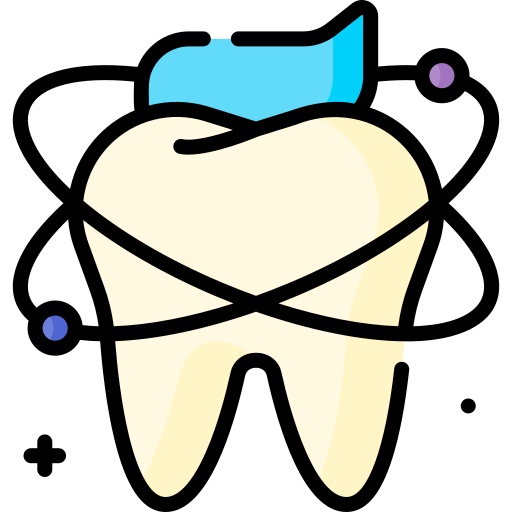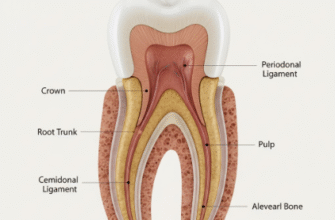We often focus intently on our teeth – their whiteness, their alignment, their freedom from cavities. But lurking just beneath, or rather, surrounding them, is an unsung hero of our oral health: our gums. These soft tissues do far more than just frame our smiles; they play an absolutely critical role in supporting our teeth, keeping them stable, and protecting them from a host of potential problems. Think of them as the dedicated guardians of your pearly whites, tirelessly working behind the scenes.
What Exactly Are Gums?
Your gums, known scientifically as gingiva, are the soft, pinkish (or sometimes more pigmented, depending on ethnicity) tissue that lines your mouth and surrounds the base of your teeth. When healthy, they are firm, resilient, and don’t bleed easily. They cover the alveolar bone, which is the part of your jawbone that encases the tooth roots. This covering isn’t just for show; it’s a specialized type of skin, essentially, adapted for the unique environment of the mouth, constantly dealing with moisture, temperature changes, and the mechanical forces of chewing.
Imagine them as a snug collar around each tooth. This “collar” needs to be intact and healthy to perform its duties effectively. The texture and color of your gums can often be an early indicator of your overall oral health, making them important messengers if something isn’t quite right.
The Unseen Support System
While teeth might seem like they’re just rigidly stuck into our jawbones, the reality is a bit more complex, and gums are a key player in this intricate setup. They are an integral part of the periodontium, which includes all the structures that support your teeth. Without healthy gums, the entire support network for your teeth is compromised.
The Gum-Tooth Connection
The way gums attach to teeth is quite fascinating. There’s a small, shallow groove or space between your tooth and the gumline, called the gingival sulcus. In a healthy mouth, this sulcus is typically only 1 to 3 millimeters deep. The gums attach firmly to the teeth just below the bottom of this sulcus. This attachment, often referred to as the epithelial attachment, creates a vital seal. It’s like a perfectly fitted gasket, preventing bacteria and food debris from easily working their way down along the root of the tooth.
This seal is incredibly important. If it’s compromised, it opens up a pathway for irritants to reach the deeper supporting structures, including the periodontal ligament (the fibers that connect the tooth root to the bone) and the bone itself. So, while the gums don’t directly anchor teeth into the bone like the ligament does, they protect all the structures that do.
A Protective Barrier
Beyond just the seal, healthy gums provide a robust protective barrier. They shield the sensitive roots of your teeth, which aren’t covered by hard enamel like the crowns are. If gums recede, these roots can become exposed, leading to sensitivity to hot, cold, or sweet things. Furthermore, the roots are rougher than enamel and more susceptible to decay if left exposed.
Gums also act as a sort of shock absorber. They cushion the teeth and the underlying bone from the daily forces of biting and chewing. This resilience helps to distribute forces evenly and prevent trauma to the more delicate structures beneath. They are the first line of defense, absorbing some of the impact and protecting the deeper periodontal tissues. Think of them as the soft padding that keeps your teeth safe and sound within their bony sockets.
When Support Falters: The Impact of Unhealthy Gums
If the health of your gums declines, their ability to support and protect your teeth is significantly diminished. This isn’t just a minor inconvenience; it can have serious consequences for the long-term stability of your teeth. Gum problems often start subtly, but they can progress if not addressed, leading to a cascade of issues that weaken the very foundation of your smile.
The Early Signs: Gum Irritation
One of the most common early indicators of gum trouble is inflammation, often referred to as gingivitis. This happens when plaque – a sticky film of bacteria – accumulates along the gumline. The bacteria in plaque produce toxins that irritate the gum tissue. When gums are irritated and inflamed, they might appear redder than usual, swollen, and may bleed easily, especially when brushing or flossing. At this stage, the gums may start to lose their tight grip around the teeth, and the protective seal can become less effective. Fortunately, at this early stage, the issues are often reversible with improved oral hygiene and professional care, as the underlying bone and connective tissues are not yet affected.
More Serious Concerns: Weakened Foundations
If gum inflammation persists and isn’t managed, it can progress to a more serious condition often called periodontitis. In this stage, the chronic inflammation causes the gums to pull away from the teeth, creating deeper spaces or “pockets.” These pockets are problematic because they become breeding grounds for even more harmful bacteria, which are difficult to remove with regular brushing and flossing. As these bacteria thrive, they release more toxins, leading to further inflammation and, crucially, the destruction of the tissues that support the teeth. This includes the periodontal ligament and the alveolar bone that holds the teeth in place.
As bone is lost, the teeth lose their firm anchorage. They might become loose, shift their position, or eventually, in severe cases, may need to be removed or can even fall out. This highlights how absolutely essential healthy gums are – they are not just a passive covering but an active defender and supporter of your teeth.
Verified Fact: Healthy gums form a crucial seal around each tooth, acting as a primary barrier against bacteria. This attachment is vital for maintaining tooth stability and protecting the underlying bone. Without this strong foundation, the entire support system for your teeth can become compromised over time.
Nurturing Your Gums for Strong Teeth
Given their critical role, taking care of your gums is just as important as taking care of your teeth themselves. The good news is that maintaining gum health is largely achievable through consistent, good oral hygiene practices and regular dental visits. Think of it as investing in the foundation of your oral health – a strong foundation supports a strong structure.
The Cornerstones of Gum Care
Effective gum care revolves around controlling the buildup of bacterial plaque. This is the primary culprit behind most gum issues. Here are some fundamental practices:
- Gentle but Thorough Brushing: Brushing your teeth twice a day is key. It’s important to use a soft-bristled toothbrush and fluoride toothpaste. Angle the brush towards the gumline (about 45 degrees) and use gentle, circular or short back-and-forth motions to clean both the teeth and the gumline effectively. Don’t scrub too hard, as this can actually damage your gums.
- Daily Interdental Cleaning: Your toothbrush can’t reach all the nooks and crannies, especially between teeth and under the gumline. This is where flossing or using other interdental cleaners (like interdental brushes or water flossers) comes in. Cleaning between your teeth once a day helps remove plaque and food particles from these hard-to-reach areas, preventing them from irritating your gums.
- Balanced Diet: While not a direct cleaning method, what you eat can influence your oral health. A balanced diet that’s rich in vitamins and minerals supports overall health, including the health of your gum tissues. Limiting sugary snacks and drinks also helps reduce the fuel for plaque bacteria.
- Regular Dental Check-ups: Visiting your dentist regularly (typically every six months, or as recommended) is crucial. These visits allow for professional cleanings and a thorough examination of your teeth and gums.
Why Professional Check-ups Matter
Even with the most diligent home care, there are aspects of gum health that are best managed with professional help. Dentists and dental hygienists can spot the very early signs of gum problems, sometimes before you even notice any symptoms yourself. Early detection means that issues can often be addressed more easily and effectively.
Furthermore, professional cleanings are essential for removing calculus, also known as tartar. This is hardened plaque that cannot be removed by brushing or flossing alone. If tartar is allowed to accumulate, especially below the gumline, it constantly irritates the gums and provides a rough surface for even more plaque to gather. Your dental professional has the specialized tools and skills to safely and effectively remove this tartar, helping to keep your gums healthy and your tooth support strong.
Gums and Overall Oral Stability
It’s clear that gums are far more than just a passive backdrop to our teeth. They are active participants in our oral health, providing essential support, protection, and stability. When your gums are healthy, they form a tight, protective seal, absorb chewing forces, and help to keep your teeth firmly anchored in your jaw. They are truly the bedrock upon which a healthy smile is built.
Neglecting your gums can, unfortunately, lead to a domino effect of problems that ultimately compromise the teeth they are meant to protect. Loose teeth, sensitivity, and even tooth loss can be the eventual outcome if gum health is not prioritized. So, the next time you brush and floss, remember the vital role your gums play. Giving them the attention they deserve is a fundamental step towards ensuring your teeth remain strong, stable, and healthy for years to come. Appreciating and caring for these often-overlooked tissues is an investment in your entire smile.








